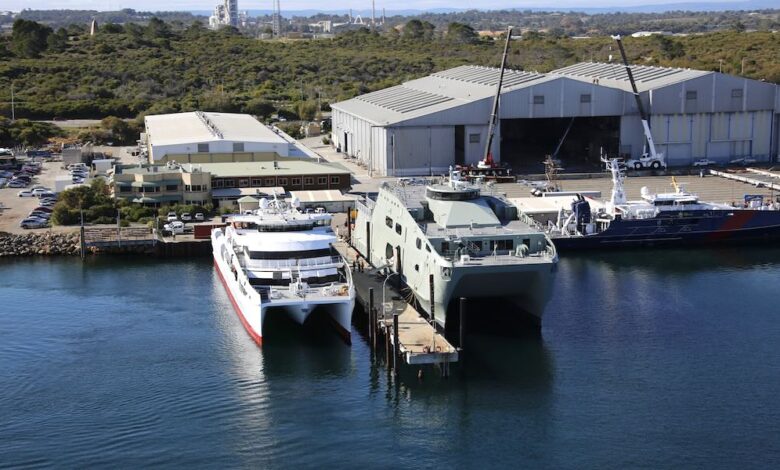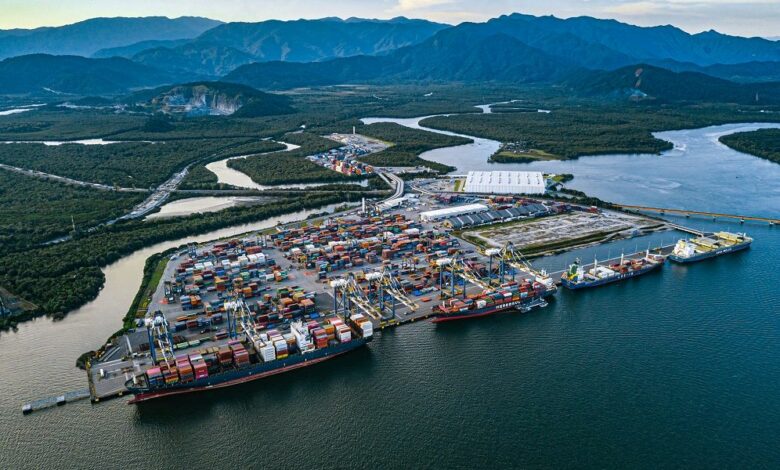Energy News Beat
Last month, global LNG imports increased by 1.26 Mt y-o-y to 34.90 Mt, the highest level ever recorded for the month, Doha-based GECF said.
GECF said this marks the first monthly y-o-y increase after three consecutive months of decline.
The growth was primarily driven by Europe, and to a lesser extent from the MENA region, which offset a decline in Asia Pacific imports.
GECF said the substantial premium of TTF gas prices over North East Asia (NEA) spot LNG prices
continued to redirect US LNG cargoes to Europe rather than the Asia Pacific.
For January and February 2025 combined, global LNG imports totaled 73.63 Mt, reflecting a
1.4 percent (1.01 Mt) y-o-y increase, largely supported by stronger imports in Europe, according to GECF.
In February 2025, European LNG imports surged by 19 percent (1.95 Mt) y-o-y, reaching a record high of 11.99 Mt for the month, remaining relatively unchanged from January, GECF said.
The increase was driven by lower pipeline gas imports and higher gas demand for heating amidst colder weather.
At the country level, Türkiye, the UK, France, and Belgium led the growth, offsetting declines in Spain, the Netherlands, Italy, and Germany.
For January and February 2025 combined, Europe’s LNG imports rose by 13.5 percent (2.85 Mt) y-o-y to 24.01 Mt, GECF said.
The surge in Türkiye’s LNG imports was driven by the need to compensate for reduced pipeline gas supplies to neighboring countries following the non-renewal of the Russia-Ukraine gas pipeline transit agreement, it said.
In the UK and Belgium, higher gas consumption fuelled the increase in LNG imports.
Meanwhile, in France, a combination of stronger gas demand and lower pipeline gas imports from Norway contributed to the rise in LNG imports.
Conversely, in Spain and Italy, despite higher gas consumption, a sharp increase in pipeline gas imports from Algeria curbed their LNG imports.
Additionally, higher gas production in Italy further contributed to its decline in LNG imports.
Although gas consumption in the Netherlands and Germany was higher y-o-y, LNG cargoes were redirected to higher-priced markets in the region, leading to lower imports in both countries, GECF said.
GECF said LNG imports in the Asia Pacific region declined for the fourth consecutive month in February, dropping by 4.6 percent (1.02 Mt) y-o-y to 21.14 Mt, and dipped below the February 2023 level.
The weaker LNG imports was attributed to the negative NEA spot LNG-TTF price spread, with Europe pulling LNG cargoes away from Asia Pacific, as well as weaker gas consumption in some countries.
China, South Korea, and Japan drove the decline in the region’s imports, which was partially offset by higher imports in Taiwan, GECF said.
For January and February 2025 combined, Asia Pacific’s LNG imports fell by 5.1 percent (2.44 Mt) yo-y to 45.76 Mt.
China’s LNG imports fell to their lowest level since June 2022, driven by weaker gas consumption, higher pipeline gas imports, and increased domestic gas production.
In South Korea and Japan, LNG imports declined as Europe attracted LNG cargoes away from Asia Pacific.
Additionally, lower gas consumption in Japan further contributed to its drop in imports.
Conversely, Taiwan’s LNG imports increased, supported by stronger gas demand, GECF said.
LNG imports in the Latin America & the Caribbean region declined sharply by 20 percent (0.18 Mt) y-o-y, reaching 0.73 Mt, the lowest level since April 2023, according to GECF.
The decline was primarily driven by lower imports in Jamaica, Puerto Rico, and Colombia.
For January and February 2025 combined, LAC’s LNG imports decreased by 7.4 percent (0.15 Mt) y-o-y to 1.85 Mt.
GECF said the drop in Jamaica’s LNG imports was linked to reduced imports from Nigeria, while Puerto Rico’s decline resulted from lower deliveries from Trinidad and Tobago.
Additionally, higher hydro levels lowered gas demand for electricity generation, contributing to weaker LNG imports across the region, it said.
On the other hand, LNG imports in the MENA region surged by 125 percent (0.50 Mt) y-o-y to 0.90 Mt 0.74 Mt, which is a record high for the month, GECF said.
For January and February 2025 combined, the MENA region’s LNG imports jumped by 123 percent (0.91 Mt) y-o-y to 1.64 Mt.
Egypt and Jordan led the increase in LNG imports within the region. Egypt has ramped up LNG imports in recent months, utilizing its installed FSRU as well as the Aqaba FSRU in Jordan, to help offset its gas supply shortfall, GECF said.
GECF said that global LNG exports rose by 0.9 percent (0.31 Mt) y-o-y, reaching 33.95 Mt in February, marking a record high for the month.
The increase was driven by non-GECF countries, which offset a decline from GECF member countries.
For January to February 2025 combined, global LNG exports totaled 71.51 Mt, reflecting a
1 percent (0.70 Mt) y-o-y increase, driven mainly by non-GECF exporters.
GECF said the share of non-GECF countries in global LNG exports rose from 51.9 percent in February 2024 to 53.2 percent in February 2025, while the share of GECF member countries’ LNG exports declined from 47.2 percent to 45.8 percent over the same period.
The share of LNG re-exports was relatively stable.
GECF said the US, Qatar, and Australia remained the top three LNG exporters in February 2025.
The post GECF says February LNG imports climb appeared first on Energy News Beat.

















